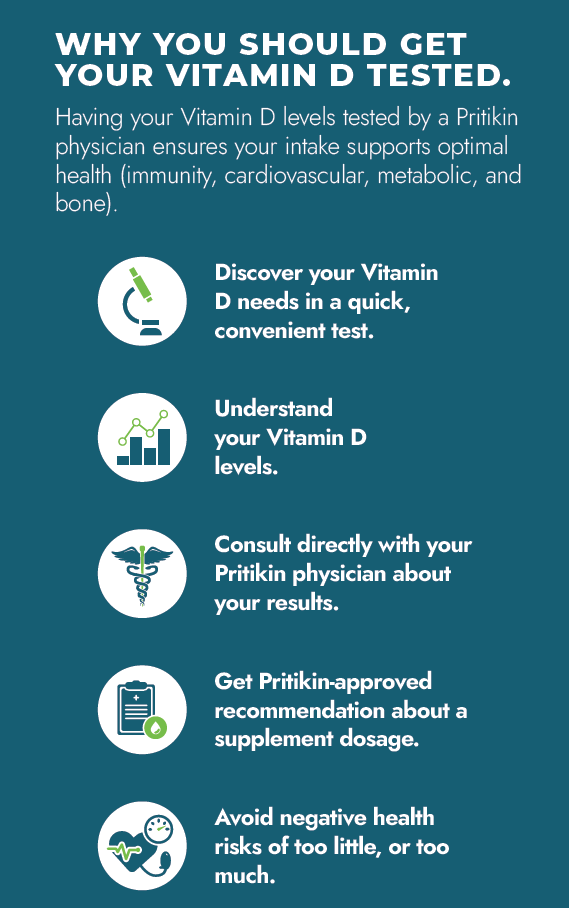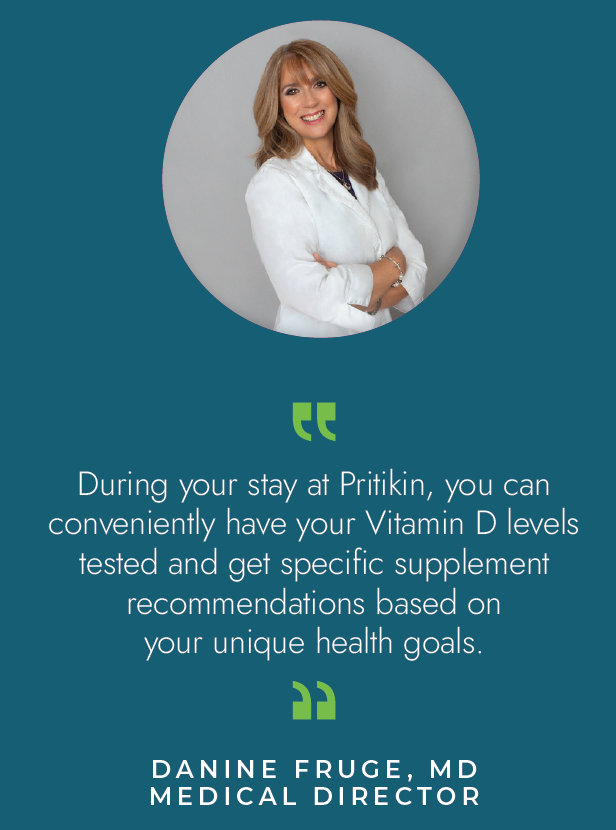Why you might not be getting enough Vitamin D

1. What is Vitamin D?
Vitamin D is a pro-hormone. For it to become useful, after getting exposure to UV light the Vitamin D has to travel from skin to other organs. While most of the Vitamin D in your body is created from sunlight exposure, small amounts can be found in mushrooms and fatty fish.
Vitamin deficiencies are widespread globally.
Low Vitamin D levels are associated with immune incompetence, inflammation, aging, acute upper respiratory illnesses, osteoporosis, and more.

2. Why you might not be getting enough.
Even if you live in the sunny south, most people do not get sufficient quantities of Vitamin D from the sun. In addition, sunscreen reduces the ability of ultraviolet light from the sun to stimulate Vitamin D formation in the body. It is also believed that belly fat may interfere with your ability to produce Vitamin D.
3. Health benefits of Vitamin D
A significant body of research shows Vitamin D plays an essential role in health, including the support of many common areas of concern:
- Heart Health & Blood Pressure Regulation
- Immune & Anti-inflammatory
- Blood Sugar Control
- Bone Health & Osteoporosis Prevention
- Cancer
- Mental Health
- Weight Management
4. Are you getting enough Vitamin D?
Most people in the United States consume less than recommended amounts of Vitamin D, according to the National Institute of Health. A misconception has led many to believe Vitamin D is a ‘sunshine vitamin’.
5. Vitamin D & COVID-19
Clinical evidence shows low Vitamin D levels may influence a person’s susceptibility to COVID-19 and the severity of illness.
How?
- Vitamin D Has antiviral effects. Research shows Vitamin D has antiviral effects against enveloped viruses, (such as coronavirus) by improving immunity and physical barriers. [Clin Mol Allergy 2020]
- Low Vitamin D levels are related to a higher risk of respiratory tract infections. Over 25 clinical trials show Vitamin D supplementation is safe and protects against acute respiratory tract infections. [British Journal of Medicine, 2017]
- Poor Vitamin D status may be associated with an increased risk of COVID-19 infection. Regions with proactive Vitamin D policies, education, supplementation, or greater UVB exposure, have a lower COVID-19 infection and mortality. [British Journal of Medicine, 2020]

Who is at risk of Vitamin D.
If you experience one of the following in your life, you may be at greater risk of low levels of Vitamin D and could benefit from having your Vitamin D levels tested by a physician:
- Obesity
- Older adults (synthesis of Vitamin D declines with age)
- Limited sun exposure
- People with dark skin
- Cystic fibrosis
- Celiac disease
- Crohn’s disease, Ulcerative colitis
- Gastric bypass patients
- Poor liver or kidney health